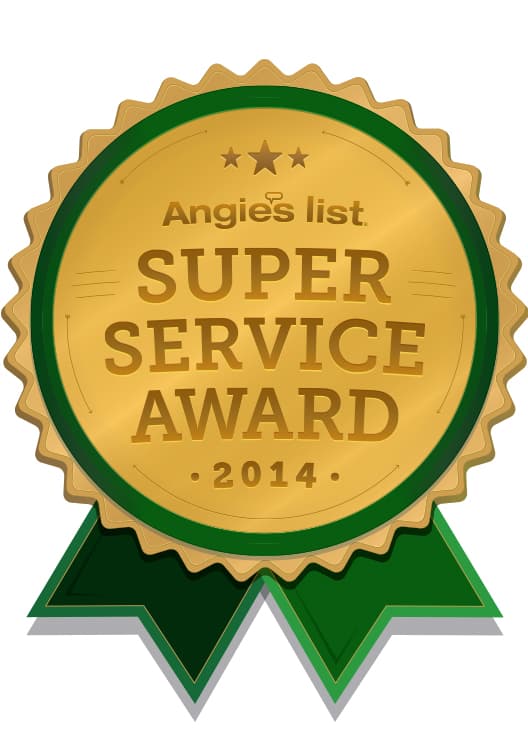Should I Repair or Replace My Broken Refrigerator?
When considering whether to repair or replace a malfunctioning or broken refrigerator, it’s best to have a little guidance. If the refrigerator has a history of breakage or poor performance, or if it’s quite old and inefficient, or if you’re just plain tired of what you have for any number of reasons not having necessarily to do with performance, such as capacity or layout or features, that may make your decision easier. You might also decide to replace your refrigerator because you are moving or remodelling, and it doesn’t fit a particular space or decor. That said, this article is for those who want to have some clarity as to whether it’s better to repair a refrigerator that you’d rather not replace if you don’t have to.
Replacing a refrigerator is a somewhat expensive proposition, if quality and features are factors, and most buyers will invest considerable time and effort into scoping out the alternatives. Luckily, refrigerators are pretty low-maintenance as major appliances go, and those manufactured by quality brands are liable to have reasonably long warranty coverage, which can be extended, usually by an insurance company associated with the sellers for added peace of mind. Generally speaking, you should expect for a new refrigerator to last from 10 to 20 years.
That said, the consequences of a broken or malfunctioning refrigerator can be significant, particularly if you use the freezer to store expensive cuts of meat. If that’s the case, it’s not a bad idea to keep a high-quality cooler on hand, just in case your refrigerator breaks or the power goes out for an extended period of time, or just for when you wish to defrost or deep clean the unit.
As with any other appliance, the more features and conveniences there are, the more there is to break. It’s nice to have an ice and water dispenser on the outside of the fridge, but it’s one of the most breakage-prone parts of an expensive fridge. I know I’m one of the people who just limped along without the water dispenser for awhile every time it stopped functioning the last time I had a refrigerator with one. Some people prefer to have dedicated ice makers and tap-attached water filtration at the sink for just this reason. If something goes wrong, it’s just that smaller appliance that’s affected.
All that said, here are the situations in which you might consider replacing rather than fixing your refrigerator.
Overheating
Your refrigerator compresses and expands gas to absorb and move heat. That’s why you’ll feel heat emitted out of the bottom of your fridge if you place your toes down there. The compressing is done by a motor, and the motor itself may overheat. Relatedly, some compressor motors are louder than others. You can hear them kick in when you leave one of the doors open long enough to trigger the thermostat. That sound may also be accompanied with a beeping to alert you that you should close the door as soon as possible to preserve the temperature.
While it’s normal to feel some heat when you touch the back of your fridge (and there should be sufficient space behind and above to permit the heat to radiate away without building up too much), if your fridge becomes positively hot to the touch such that you have to pull away for fear of burning yourself, there’s either something wrong with the thermostat or the other mechanical elements of the unit. The coils in the back that radiate the heat that’s transferred from inside to outside your refrigerator are insulated, but if it gets hot back there try first to remove any dust or grime that has accumulated on the coils. A paint brush and vacuum attachment work well for this operation. If that doesn’t help, call a repairman to come look. It may be that your refrigerator has leaked some coolant, which can be replaced, but it might be something more significant.
Overfreezing
On the other hand, your freezer unit may be positively freezing over. Obviously, you want your frozen food frozen, but on the other hand you shouldn’t have to see the foods inside turning into a glacier. If it’s starting to look like a new ice age in there, check that the temperature isn’t set to max cooling. Move anything you want to keep into alternate cold storage (such as a large cooler, or, if you live where it gets cold in winter, you can use those temperatures), throw down some old towels to absorb the meltage, and unplug the unit to let it defrost thoroughly before plugging it back in. This would be the ideal time to try cranking the freezer setting back a little to see whether that suffices. Most modern refrigerators have auto-defrost, so this recommendation largely applies to older models.
If the problem persists or gets worse, it’s best to have a pro get a look at your refrigerator to see what the issue may be. The friendly repairmen at Dave’s appliance will probably be able to sort it out pretty quickly.
Leakage or Extreme Condensation
This may be a simple matter of the seal around your refrigerator or freezer door. If heat is escaping, ice may be melting in the freezer and causing leakage. Alternately, moist air from outside might be entering the refrigerator and condensing, then leaking out of a bad seal. Check the stripping all the way around the door. You may be able to reaffix it yourself, or buy new stripping if you’re handy. But leakage near the refrigerator can pose a health hazard, either by slipping or through accidental electrocution, so BE CAREFUL.
Alternately, the drip pan may be broken or out of place, or hoses may be broken or kinked, or a malfunctioning latch or other problem may be preventing a door from closing properly. Often these are the culprits if you find the inside of your refrigerator is wet to the touch and drips.
Your Refrigerator Runs Loud
Some of us are just more sensitive to this kind of noise than others, but if it seems to have gotten louder than you remember, you can pull the plug and then replug it in, and this may take care of any buzzing. If not, give your repairman a call. Your refrigerator could be on its last legs.
Food Spoilage
Obviously, this gets expensive quickly, and it can pose a health hazard. Check to make sure that door latches and stripping are good, and that your setting hasn’t been dialed way back. Check the back of the unit for overheating, as mentioned above.
In Conclusion
If your refrigerator is older, say 12+ years, and/or if it’s needed significant repair one or more times before, or if it’s not efficient, or you’re ready to move on, a new refrigerator may be your best option.
If you’d rather not replace it, and if you’re handy, you can look for online resources to help you take a stab at fixing such problems yourself, but when in doubt, call on the experts at Dave’s Appliance. They’ll fix your refrigerator if that’s the best course of action, or recommend a new one if that’s your better bet given your situation. And Dave’s carries all the best value, top quality brands. Give them a shout if your refrigerator is having troubles. They’ve seen it all. They’ll get it straightened out for you.








